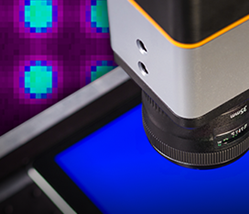Radiant Vision Systems, a subsidiary of the Konica Minolta group who experts in photometric imaging solutions for light and display measurement, announces that it will present a technical paper during the 2020 Display Week Symposium taking place online from August 3-7. Doug Kreysar, CEO of Radiant Vision Systems, will present the company’s paper titled “Fractional Pixel Method for Improved Pixel-Level Measurement and Correction (Demura) of High-Resolution Displays.”

(Image: Radiant Vision Systems)
The presentation will highlight the company’s fractional pixel method and provide data demonstrating the method's accuracy for pixel-level luminance measurement over traditional “whole pixel” methods. The results will show that luminance data obtained using imaging systems with limited sensor resolution (achieving as few as 3 x 3 image sensor pixels per display pixel)—when a fractional pixel method is applied—provide a very close match to luminance data obtained using an extremely high-resolution imaging system (achieving as many as 30 x 30 image sensor pixels per display pixel). Without a fractional pixel approach, pixel-level luminance measurements obtained using available imaging systems may have significant inaccuracies. These inaccuracies can impact correction processes, resulting in noticeably poor visual quality in “corrected” displays.
Kreysar indicated that “Technologies like OLED, Mini, and Micro LED are illuminated by their emissive pixels and subpixels, which can vary in output. This variation results in nonuniform brightness and color across the display, making measurement and correction processes a critical part of quality control. Measuring the characteristics of individual display pixels, however, has become more challenging for image-based measurement technology, which must apply several sensor pixels per display pixel for accurate measurement. A new fractional-sensor-pixel measurement method was developed by Radiant to improve the accuracy of image-based measurements specifically for ‘demura’ or pixel uniformity correction applications. This method enables highly flexible display pixel registration to ensure accurate calculation of display pixel correction factors to improve display uniformity.”












